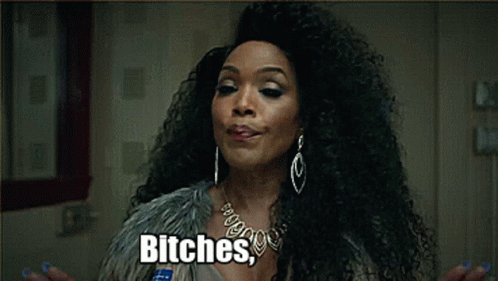When you learn to say “no” the right way, things change!

Have you ever felt as if you’re being pushed in a million different directions and never have any time or energy left for yourself? Then it’s about time you learn to say “No, thank you,” “Not right now,” and “Not ever”. But let’s face it: saying ‘no’ is difficult. As a kid, it’s simpler – but as we age, we lose the ability to say it. Even if you truly don’t want to agree to something, it’s always easier to say “yes.” In the end, you attempt to satisfy everyone else’s needs and keep them satisfied. As a result, you ditch the things you want to do, which then leads you to fatigue, frustration, and resentment.
The problem with us is that we worry that saying “no” will make people hate us. Hence, we agree to a million and one requests because we want to be liked. Well, I’m gonna tell you how to set up boundaries in your life and truly take care of yourself while still being appreciated, even when ‘no’ is your answer.
Your needs, your priorities

To flex your freedom to say “no,” you must alter the way you view your needs in relation to those of others. Asians are taught not to think highly of themselves. It is egotistical and kiasu. Plus, it’s simple to slip into the trap of prioritizing everyone else’s needs because we all want to be nice people. Well, you need to clear that shit.
It’s not necessarily selfish to prioritize your needs over those of others. Not that you should act cruelly, cause that would be totally selfish. All you should emphasize on is, “occasionally, my wants are important too.” When your needs conflict with what other people want from you, it can be difficult, but learning how to say “no” and establishing firm boundaries can be empowering for you.
But first, pause

This is a mistake we always make. When pressured, we tend to say “yes” to things we don’t actually wanna do. Taking your time to answer will help free you from this pressure. Instead, think about the best course of action for a few minutes, hours, or even days. This method is effective for all types of requests such as via WhatsApp, email, text, Messenger and face-to-face.
Always remember that not every situation needs an instant answer. If you’re worried about being rude, don’t be. You can try approaches like:
“I’m not sure. Can I come back to you on that?”
“Can I think about it? I need to check my calendar.”
“When do you need to know by? I need to check a few things first.”
These phrases help you hit the pause button before deciding on something. And by doing so, it’s even easier to say “no”.
Be clear on what you want

I see it, I like, I want it, I got it… you know how that goes.
Sometimes, there’re certain things we really, really want to do. But when a situation pops up, we find it so difficult to stick with what we actually wanna do and end up saying “yes” to everything else! The tip here is to be absolutely clear with what you WANT! If you don’t want to go to that wedding, then don’t go – or if you wanna stay home away from some annoying relatives, do it!
Keep in mind that you are not required to answer “yes” simply because you lack a good reason to decline. You can simply respond “No thanks. I have plans this evening”, the next time you are invited to an event, but really don’t want to go. Besides, nobody needs to know that you’re actually binge-watching Netflix.
Their reaction is not your responsibility

Saying “no” sounds easy. But wait till you see their reaction. Just know it’s normal for someone to feel disappointed if they don’t receive your time, effort, or attention when they are asking for it. It makes sense that people don’t like it when you refuse their requests. But their concerns are theirs, not yours.
And of course, people will often go the long way to make you say “yes”, even if it makes you uncomfortable. They might probe or criticize you. That, however, is unrelated to your decision. Decide calmly, stick to your decision, and demonstrate to others how you want to be treated. Try saying, “I know my decision is disappointing to you, but I’m comfortable with it,”. You’re not saying you don’t care about how they feel. You’re using the term “comfortable” in deference to them.
Remind yourself it isn’t bad

When it comes to putting yourself first, there’s always a bunch of idiots who’ll put you on a guilt-trip. People-pleasers, perfectionists, and yes-men often believe that saying “no” makes them a horrible person. By refusing, it doesn’t make you a bad person entirely. In fact, you become more guarded with your time and energy, which is something we all ought to be.
If you’re someone who tends to say “yes” out of habit, it’s time to let go of your mindset that saying ‘no’ is selfish or improper. The word “no” is not off-limits; rather, each person is free to use it as they see fit.
Switch ‘no’ to ‘later’

For some, “no” is not an answer they’ll settle for. That’s why you need to play with your words when dealing with these hard-headed people. Switching “no” to “later”, can actually save you the trouble. If you’re at work, say you’re busy, but might be able to give them a timetable on when you’ll be free. Alternatively, if someone asks you to pick up a cousin, say you’re unavailable, but might be able to give them a schedule of when you’re free later. But saying “later”, you sort of put certain requests on hold. This gives you time to decide and if you’re not into it, it’s easier to hit the “no” button.
Don’t explain

As if saying “no” isn’t hard already, giving an explanation as to why your answer is a “no” makes things worse. To say “yes” or “no” is a choice and it definitely doesn’t need an excuse to back it up. It’s as simple as that. But sometimes, we can’t help but defend our answer with explanations that’ll only leave us in an awkward situation. And remember, no matter what justification you give, those who are adamant on getting you to say “yes” will find a way to lure you in.
The solution is pretty simple: Thank them for the offer, tell them “no” and offer no explanation.
Keep your stance

The crucial component. Everything you accomplish will be in vain if you don’t have this. After saying “no,” keep that as your final reply. If you don’t, some people might get you to agree to things you don’t want to do by having you cave in. By being adamant in your response, you’ll make it clear that you’re not open to more persuasion. It’s acceptable to have faith in your judgement and exercise personal control.
More on opinion? Read:
Affirmative Action: It’s Time To Practice Positive Morning Self-Affirmations, Girlfriend!










